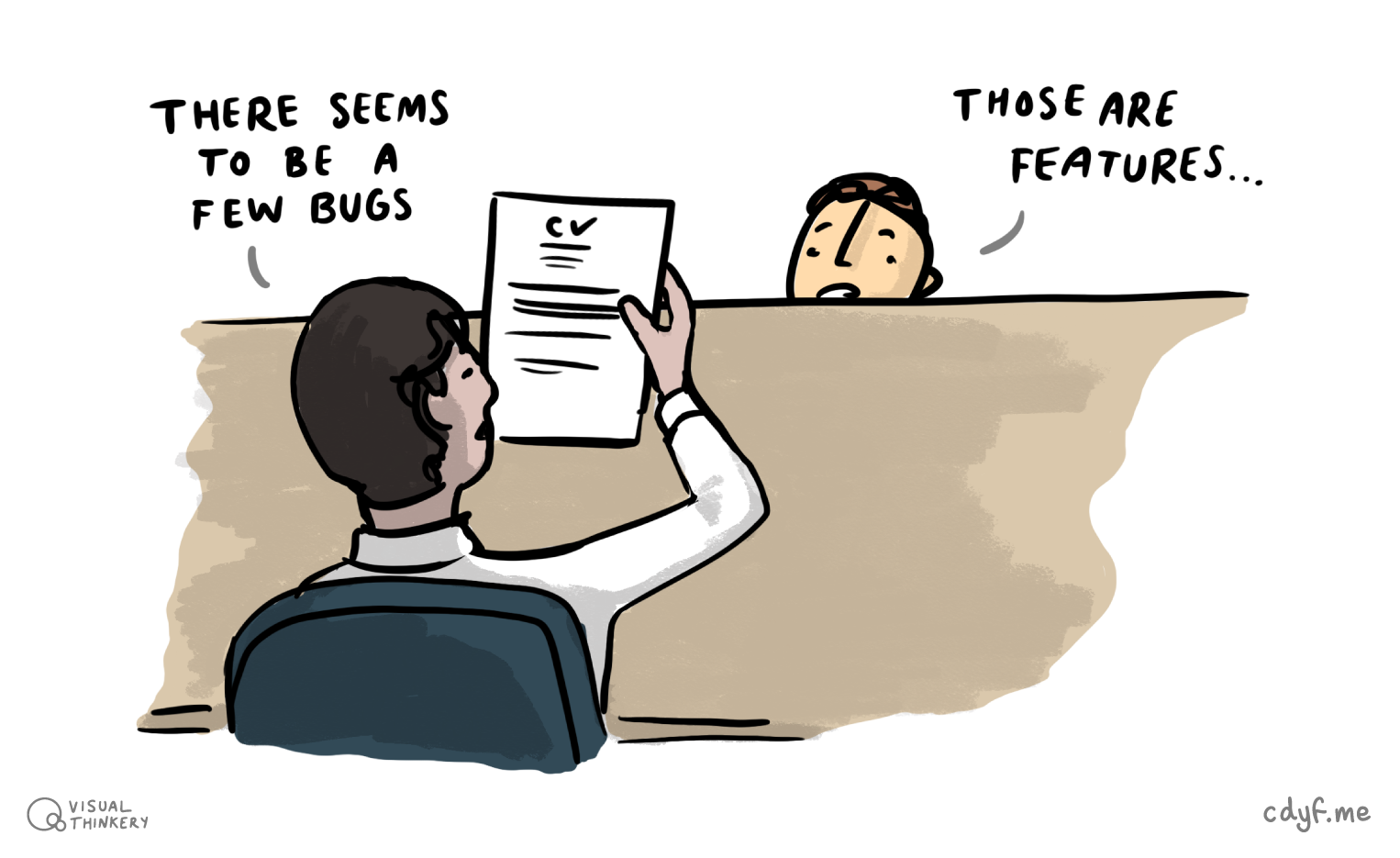1 Studying Your Future
I teach, mentor, tutor, lecture on and supervise a variety of undergraduate and postgraduate courses. You can find me online during office hours, in the labs, my office hours, on youtube.com/@coding-your-future and in lecture theatres. 🎭

Figure 1.1: Posing on the BBC Breakfast red sofa with the winning team of the BBC / Barclays University Technology Challenge (UTC) in MediaCityUK, Salford
1.1 All Years: Debug Your Future
If you’d like to debug your CV, application form, covering letter and job search etc, read debugging your future (Hull 2025b) and hacking your future (Hull 2025c), especially if you haven’t written a CV, Résumé or LinkedIn profile before. Once you’ve checked your CV against short checklist at cdyf.me/debugging#quick you can get feedback from me by submitting your CV (etc) at bit.ly/debug-my-cv or using the QR code in figure 1.2



Figure 1.2: Once you’ve self-checked your CV using cdyf.me/debugging#quick you can get feedback by submitting your CV (etc) at bit.ly/debug-my-cv (login required)
Once you’ve submitted your CV you can:
- Drop-in to my weekly one-to-one CV clinics for Computer Science students online during term-time during my open office hours, Wednesday 10am to midday on the lower first floor of the Kilburn building
- Get feedback on your CV from as many other people as possible, because “given enough eyeballs, all bugs are shallow” (Raymond 1999)

Figure 1.3: Is that a bug or a feature in your CV? It’s important to debug your CV before an employer sees it, see the Wednesday Waggle for details of my weekly live debugging sessions. Features not bugs picture by Visual Thinkery is licensed under CC-BY-ND
Outside of term time, it’s best to book a debugging appointment. 🐛
1.2 First Year Students
If you’re in your first year of study, I serve as:
- Academic staff member for First year team projects: COMP101 led by Stewart Blakeway (Blakeway 2025), see the getting started with LaTeX lab manual
- Mentor and tutor to one group of six first year students
- Organiser of first year guest lectures, which mostly run in the second semester, February to May
1.3 Second Year Students
If you’re in your second year of study, I serve as:
- Course leader for Coding your Future: COMP2CARS a course designed by me for (primarily) second year students to design, build, test and debug their futures in computing.
1.4 Penultimate Year Students
If you’re on placement during your penultimate year (your last-but-one), I serve as:
- Course leader for “with industrial experience” (IE), an elective and intercalated year in industry.
- Year tutor for students on placement, either face to face or via telecon
1.5 Final Year Students
If you’re in your final year of study, you’ll find me:
- Supervising final year educational projects based in secondary schools in Greater Manchester, see coding their future. (Hull 2020a) 👩💻👨💻
1.6 Masters Students
If you’re doing a Masters degree, you’ll find me:
- Leading the course on Principles of Digital Biology which covers Bioinformatics, Computational Biolgy and a bit of medical informatics 🧬
- Supervising Master of Science projects in Computer Science and Data Science. (Wickham and Grolemund 2017) This typically involves various combinations of Wikipedia, Wikdata, SPARQL (DuCharme 2013) and chatbots. 🤖 (Sharwood 2019)
1.7 PhD Students
If you’ve got any interesting PhD research ideas you like to pitch to me, particularly if they involve computer science education or professional issues, I’m all ears! 👂
1.8 Extracurricular and Flexible Learning
Outside all of the above, I’m a promoter and supporter of flexible and extracurricular learning including:
- Organising, facilitating and promoting extra-curricular activities such as hackathons (Briscoe and Mulligan 2014; Warner and Guo 2017) and edit-a-thons. (Hull 2017, 2015; Mohammad-Qureshi and Hull 2019) These usually occur off-timetable, for example Wednesday afternoons, evenings and weekends.
- Judging competitions such as studenthack.com and greatunihack.com since 2014. These two hackathons are organised by UniCS, a student-led tech society formed by the merger of HackSoc (computer geekery) and CSSoc (socialising). Many other hackathons exist, they are usually aimed at beginners looking to learn new skills, rather than experts looking to compete. (Briscoe and Mulligan 2014; Fogarty 2015)
- Piloting the introduction of Microsoft Fundamental Certifications across the University in collaboration with the Flexible Learning Program see cdyf.me/achieving#microsoft. (George and Pettifer 2022)
1.9 Previous teaching
Previously I have served as:
- Course leader for the second year software engineering undergraduate course
COMP23311from 2020 to 2022, which taught students how to make better software - Organiser of the labs for the software engineering mentoring program
- Teaching team member for second year software engineering:
COMP23311Led by Suzanne Embury and subsequently Bijan Parsia - Second year tutor from 2016 through to 2020
1.10 Teaching Awards
Thanks to all the students at the University of Manchester Students’ Union (UMSU) who nominated me for an academic advising champion award in 2024, see manchesterstudentsunion.com/awards and figure 1.4. These annual awards recognise the achievements of staff and students who have gone above and beyond to represent student interests. (McMahon 2024)
Figure 1.4: Thanks to all the students at the UMSU who nominated me for academic advising award and thanks Sambbhav for recording it. UMSU is the largest students’ union in the UK representing over 40,000 students. You can also watch the full 30 second video embedded in this figure at youtu.be/pe-M8_lKUz0 (Jackson and Ansari 2024)